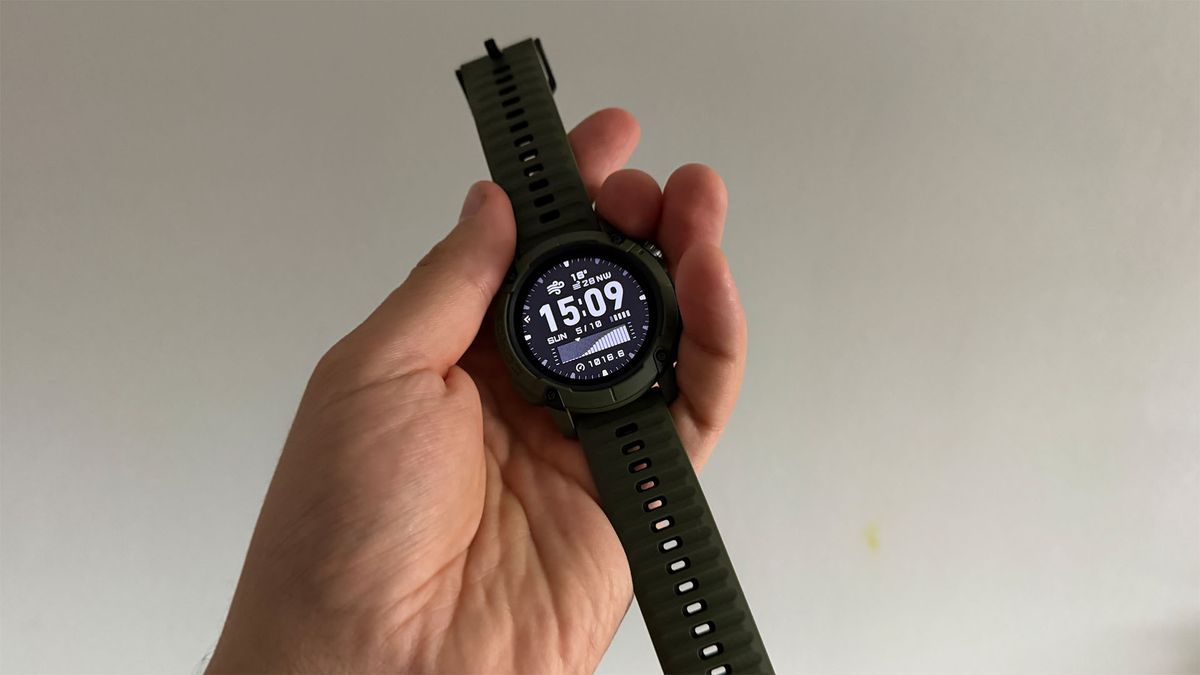Published on May 28, 2025 at 1:30 PM
One weekend, my friends and I headed to the Catskills in upstate New York to celebrate a bachelorette party. It wasn't long after we settled into our rental home that we saw it hanging on the living room wall. The American flag. The mood shifted immediately. "Do you think the owners are racist?" one friend asked. "Is it safe to be around here?" said another.
I can't recall the exact moment when our country's symbol began to feel exclusionary to people like me: Black folks or anyone who doesn't fit that white, male, heterosexual, cisgender archetype.
Maybe it always felt that way.
For as long as I've been alive, we've perceived the American flag — waving in the sky, plastered on the wall, or rendered as a form of clothing — as the symbol of an America that will never belong to us. A sign that we aren't welcome. That we aren't really American.
Yet four years after I spotted that American flag in the Catskills through a haze of confusion and fear, I found myself purchasing Americana fashion to wear to Beyoncé's "Cowboy Carter" tour. There's an American flag bandana that I'll tie around my neck and pair with a denim dress. And a cowboy hat I found with stars adorning the top and stripes covering the base.
On the surface, it fits the dress code for Beyoncé's "Cowboy Carter" era. Styled with power and purpose by Shiona Turini, Beyoncé's been embracing the Americana aesthetic, from her minidresses with a red, white, and blue color palette to her Coperni black bodysuit with American flag printed bell bottoms.
:upscale()/2025/05/28/740/n/49351773/tmp_hVxNZh_568c1e4db9ed1f11_GettyImages-2191422554.jpg) Getty Images | Brooke Sutton
Getty Images | Brooke SuttonHer wardrobe is just as defiant as her reclamation of country music, a genre that originated with Black people but has since become overwhelmingly white. "She's coming" not merely for her rightful throne in the country genre but for her rightful place within the Americana fashion landscape as well.
Beyoncé is an American treasure, but as a Black American woman, she's also uniquely positioned to ask America to do better.
But she's not embracing Americana fashion as propaganda or using it to seek white validation. In the tradition of James Baldwin, who famously said "I love America more than any other country in the world and, exactly for this reason, I insist on the right to criticize her perpetually," Beyoncé is taking a nuanced approach. She's honoring her Black American cultural upbringing while acknowledging the ways American ideology has been exclusionary and problematic. And it's not just her: Kendrick Lamar did the same with his Americana imagery during his Super Bowl performance. Plus, all over our TikTok and Instagram feeds, Black people are incorporating red, white, and blue into their concert outfits for both tours. The shift makes me question my own relationship with the American flag: is there space for me to embrace it and still demand progress?
With the "Cowboy Carter" era, Beyoncé's set a precedent to do just that. At her Christmas halftime show, she sang "Blackbiird" about the pain and hope of Black women during the Civil Rights Movement, wearing a red, white, and blue "Cowboy Carter" sash. Last July, she danced in a USA leotard while belting out "Ya Ya" with the help of our Olympics team — as its lyrics slam pay inequity and abusive insurance practices. The outfits, songs, and events all seem to confirm: Beyoncé is an American treasure, but as a Black American woman, she's also uniquely positioned to ask America to do better.
:upscale()/2025/05/28/740/n/49351773/tmp_4Ix6q1_3c7fe117d1885014_GettyImages-2213594839.jpg) Getty Images | Logan Bowles
Getty Images | Logan BowlesThat same symbolism took center stage at Kendrick Lamar's Super Bowl performance, where dancers embodied the American flag while flaking the rapper, himself dressed in red, white, and blue. With "Uncle Sam" (Samuel L. Jackson) chiding Lamar for being "too loud, too reckless, too ghetto" and the dancers separating to reflect a divided America, he was able to deliver poignant and unflinching commentary on American society during the most-watched Super Bowl broadcast in history.
These Americana looks, and the context behind them, speak to the deeply tormented and complicated relationship Black people have had with the U.S. for centuries.
The shift makes me question my own relationship with the American flag: is there space for me to embrace it and still demand progress?
My family goes back generations in this country with roots in Georgia and North Carolina. My grandparents on both sides were deeply immersed in Black Southern culture, and passed those traditions down to all of us. My grandfather loved country gospel music and played it often. Standing by my grandmother's side, I learned how to make my two favorite soul-food dishes: macaroni and cheese and shrimp and grits. I have many childhood memories of my father's gospel jazz band practicing in the basement, filling the house with music. And we always celebrated Juneteenth (which happens to land on my sister's birthday) and Kwanzaa, my parents taking great care to explain the meaning behind these culturally significant traditions.
They instilled pride within me for my culture at an early age. Our people — Black Americans — built this country over four hundred years of slavery then fought for equality within it, changing the course of history and culture and daily life for every person that sets foot on this land and breathes its air.
Today, I look around, and our music, vernacular, dance, food is interwoven into the very fabric of American culture — and revered and recreated around the world.
So, why does it feel uncomfortable for me to wear America on my sleeve? As I stood in front of my mirror trying on my "Cowboy Carter" outfits (yes, multiple outfits for multiple shows), any confusion and fear was replaced with a quiet confidence. This flag shouldn't be an exclusionary symbol, America belongs to us all.
:upscale()/2025/05/28/742/n/49351773/tmp_9MYcwv_cae72b0a4e16c1f7_Basic_Collage-4-Main_2_up_-_1456x970.jpeg) Getty Images
Getty ImagesNot everyone gets to that place with America, or Americana fashion, and that's a stance I deeply understand and respect. But this week, as I step out for "Cowboy Carter" concerts, I will push past any discomfort. I will affix my flag bandana, I will put on my stars-and-stripes cowboy hat, I will embrace Americana fashion, I will sing country music, and I will exist boldly, freely, unapologetically in the country my ancestors built.
Jessica C. Andrews (she/her) is an award-winning editor and writer who works as the senior content director of PS Shopping. With more than 15 years of experience, her areas of expertise include fashion, shopping, and travel. Prior to joining PS, Jessica held senior roles at Teen Vogue, Refinery29, and Bustle and contributed to The New York Times, Elle, Vanity Fair, and Essence. She's appeared on "Good Morning America," NBC, and Fox 5 New York and spoken on various panels about fashion, hair, and Black culture.

 6 months ago
76
6 months ago
76

:quality(85):upscale()/2025/11/28/816/n/1922507/96dfa0316929eb7d6009c4.58082318_.png)
:quality(85):upscale()/2025/11/28/911/n/1922564/6007a1e4692a0b7e0754d6.70992304_.jpg)




 English (US) ·
English (US) ·